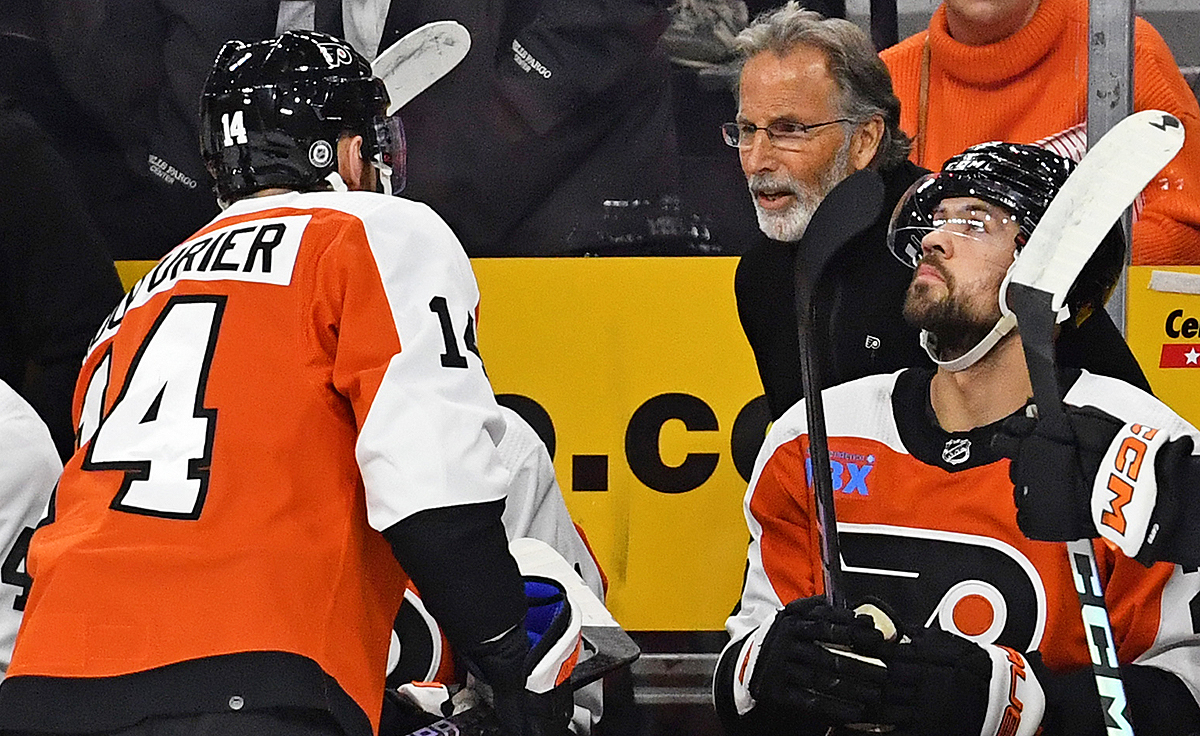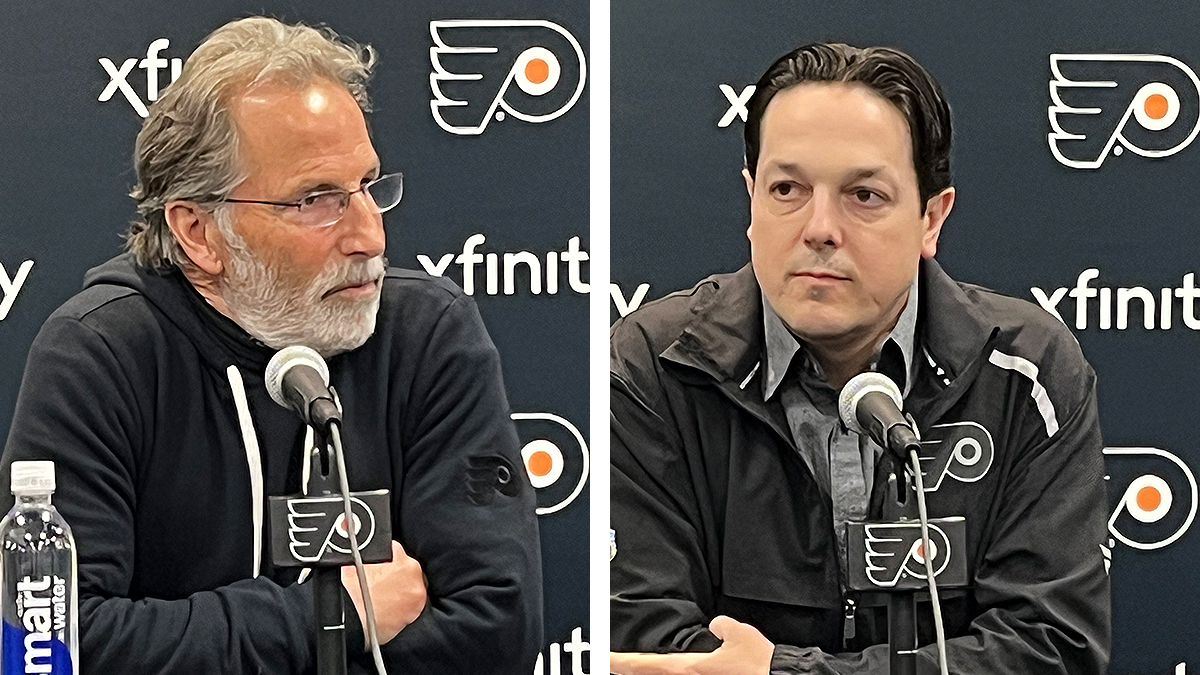Flyers forward Wayne Simmonds spent a good portion of his Wednesday night watching the nonstop CNN coverage regarding race relations in the United States and how the politicization has worked its way into the arena of sports centered around kneeling during the national anthem.
"All anyone wants to talk about right now is why they're kneeling," Simmonds said. "And if you're disrespecting the Army or the national anthem or whatever it might be. People fail to see what the real issue is, or why Colin Kaepernick actually started this protest, and that he actually talked with an armed force member who was actually on CNN last night discussing all of these issues on a panel as to why he used the national anthem as a vehicle to get this out."
Born and raised in Scarborough, Ontario, a suburb outside Toronto, Simmonds has spent the past decade living and playing professionally in the United States and has witnessed firsthand the problems that confront the United States of America.
"The bigger issues are the social inequalities in life," Simmonds continued. "The things that happen to the black youth - all the shootings and everything that's gone on in this country for numerous amounts of years.
"Being Canadian, it's happened to me in Canada, as well. I think it spans outside the U.S., but the issue right now is within the U.S. Obviously we're trying to find answers, we're trying to get a conversation sparked. We're trying to bring everyone together so it's more united, and not everyone loves you and everyone hates you. At this point, it's either black and white, but it shouldn't be black or white. There's a lot of issues in this country that people aren't taking into consideration."
Simmonds has been a victim of racism and the injustices that can take place. During a Flyers' preseason game in London, Ontario in September 2011, a fan tossed a banana his way just prior to his shootout attempt. When asked Thursday morning if these issues are being addressed in Canada where they're not being addressed in the United States, Simmonds continued.
Philadelphia Flyers
Complete coverage of the Philadelphia Flyers and their rivals in the NHL from NBC Sports Philadelphia.
"It's an American issue right now. We're talking about America. We're talking about the United States of America. We're not talking about Canada. I'm a black male living in the United States and for the majority of my time, majority of the last 10 years I've lived here, I definitely understand what everyone is protesting about it and I definitely support the cause."
Currently, Simmonds is one of 27 black players on an NHL roster. He was asked about the possibility of kneeling or making a political statement after his good friend Joel Ward -who wears No. 42 with the San Jose Sharks to honor Jackie Robinson - said he's considering taking a knee during the national anthem, whether that comes in San Jose's season opener against the Flyers or at another time throughout the course of the season. Simmonds became irritated when the idea of kneeling is brought into question.
"It's not about the kneeling, but everyone's going to continue to make it about the kneeling," Simmonds said, "If you guys want to talk about kneeling, I'm not here to talk about the kneeling. I'm here to talk about the bigger issues. If you want to talk about the bigger issues, don't ask me about kneeling.
"There's social inequalities everywhere, but the United States is dealing with that right now. The stance that's being taken is that it's not right and something should be done about it. Instead of trying to find something to do about it, everyone's talking about kneeling. I think that's sad. I think that everyone should realize what the real issue is and stop focusing on kneeling, and actually talk about the hard questions instead of figuring out who's going to kneel and who's not going to kneel."
Thursday morning, Flyers head coach Dave Hakstol, a dual citizen of the United States and Canada, addressed whether he would allow one of his players to make a political statement during the playing of the national anthem.
"I think that's a bigger conversation. I have the utmost respect for Simmer, and certainly for how strong he is within his convictions. I'm going to have that conversation and keep having those conversations with Simmer in private."
Wednesday, the NHLPA got behind Simmonds and its association supporting the desire to protest, although not specifically, as it relates to the anthem:
"We believe each player may choose to speak out or engage in peaceful protest on matters that are important to him. A player is entitled to his own views on political and social issues, and the right of each player to express such views deserves respect. Should a player decide to make such a peaceful protest, he would of course have the full support of the NHLPA in regard to his right to do so."
However, the NHL and commissioner Gary Bettman has taken a different position, as he's attempted to keep politics away from NHL rinks. During a panel discussion with league commissioners at the Milken Institute panel this past May, Bettman had this to say about anthem protests:
"Respecting the national anthem, I think it's great for our players to be involved in political and social causes. But I also think that's not why people come to games to see games. So, I would encourage, and I do encourage our players to do it on their own time. When they're showing up for work to participate in a game that people are focused on, care about, pay a lot of money to attend, then it should be all about the game. That block of time should be apolitical, and we can use our platforms to demonstrate diversity, inclusiveness, educating communities on good causes whether or not it's health or the environment. But when the game is being played, it should be about the game because that's what fans want."



